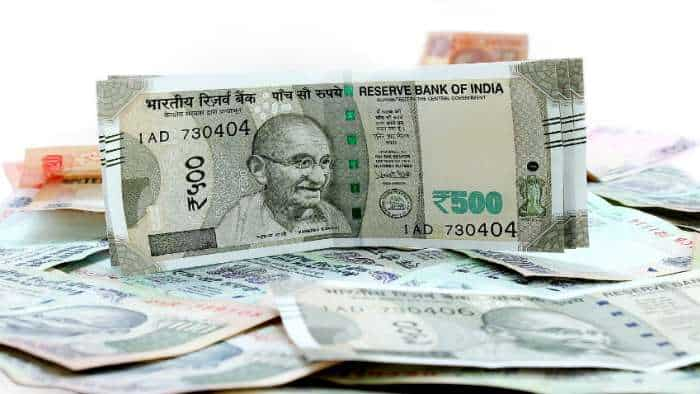Health Insurance: Can a person get more than one policy? Know pros and cons from experts
Many health insurance firms provide "illness-specific health care policies," and purchasing one in conjunction with a standard health policy might provide you with superior coverage against medical crises and growing healthcare expenditures.
)
Health Insurance Guide: As we all know, a healthy person is a mark of growth and pleasure. However, it is critical to maintain good health since it boosts productivity and puts you on the path to success. It is also necessary that you have the means to combat disease if you become unwell. Because medical treatment prices are rapidly growing, you must have solid health insurance coverage to cover your medical expenses.
If you are planning to buy health insurance, you can definitely take more than one policy including one being a basic policy and the other being a top-up. Now the question is, does that double the benefits too?
Many health insurance firms provide "illness-specific health care policies," and purchasing one in conjunction with a standard health policy might provide you with superior coverage against medical crises and growing healthcare expenditures.
If you have two health insurance policies, you can file a claim under one (basic policy) and the remaining amount can be claimed through a top-up policy.
Here are some benefits of having more than one health insurance policy.
Protect against claim rejections
When claims are rejected by health insurance providers, it may be disastrous for the family, forcing them to pay large medical bills out of pocket. Multiple policies provide significant benefits in this context. If one insurer rejects a health insurance claim, another may accept it, preserving the whole claim amount. Thus, having more than one health insurance plan protects against claim denials.
Convenience
Managing several health insurance policies through the same insurer simplifies the claims process and eliminates paperwork.
Access to multiple policies
Having multiple policies allows you to benefit from a broader coverage range and maybe a bigger sum insured.
What are the disadvantages of having multiple health policies?
Different terms and conditions
Each plan may have distinct terms and conditions for filing a claim, necessitating thorough research and comprehension to assure compliance.
Complex claim procedure
Dealing with several policies can often result in a more complicated claim procedure, as you must traverse different terms and perhaps interact with multiple insurers.
Chances of coverage duplication
The benefits of each plan mustn't overlap or duplicate since this can cause confusion and give no additional value.
Now, let's know from the experts if having more than one health policy is a good idea or not.
Shashi Kant Dahuja, chief underwriting officer at Shriram General Insurance, says, "It is definitely possible to get multiple health insurance policies and it can be beneficial to have additional or more comprehensive coverage and can serve as a backup for the insured. One must have the following type of multiple policies to safeguard against all types of unforeseen health emergencies."
"Basic Health Policy (indemnity based): A basic health insurance policy typically provides coverage for essential medical services and treatments while excluding certain elective procedures and non-essential services. Critical Illness Policy (benefit-based): A benefit-based critical illness policy is a type of insurance that provides a lump sum payment if the insured individual is diagnosed with a covered critical illness during the policy term. Unlike traditional health insurance policies, which typically cover the cost of medical treatment and services, a critical illness policy pays a lump sum benefit directly to the policyholder upon diagnosis of a covered illness. It’s advisable to opt for this policy along with the indemnity-based health policy." said Dahuja.
Further explaining about the policy, Dahuja said, "Top-up cover: A health top-up cover, also known as a super top-up plan, is a supplementary health insurance policy that provides additional coverage beyond the basic coverage offered by your primary health insurance policy. It works as a supplement to your existing health insurance by covering medical expenses that exceed the coverage limit of your primary policy or by filling gaps in coverage."
"It is important to note that having more than one similar type on a basic insurance plan does not mean that the insured will be reimbursed more than once for a particular medical treatment. The claim amount cannot exceed the 100 per cent treatment cost. When you have multiple policies, you can cover more illnesses. For example, as mentioned above by having one basic policy, one specific benefit-based policy, and with the adequate top-up cover you can cover both basic hospitalisation and treatments as well as able to claim for critical conditions while having sufficient top-up cover for the same. It is always advisable to compare multiple policies from different insurance providers to find the best coverage and value for your specific situation," added Dahuja.
Rajive Kumarasawami, MD & CEO, Magma HDI General Insurance, says, "It is definitely possible to buy multiple health insurance policies, but let's be real - it's not exactly convenient. There are a few reasons for this. Firstly, each policy comes with its own set of terms and conditions, so having multiple policies means dealing with a lot of fine print. Plus, the most expensive part of insurance tends to be the immediate coverage, like 0-3 lakh or 0-5 lakh. If you end up buying multiple policies, you're essentially paying for this base cover multiple times, even though you can claim only one policy. However, there are scenarios where it's prudent to consider purchasing different types of health policies."
"For instance, when one seeks to complement the coverage of their base policy, typically ranging from 5 to 20 lakh, with a ‘super top-up’ policy that extends coverage up to 50 lakhs or even 1 crore. In such instances, these two policies can effectively work in tandem, particularly during significant expenses. For example, if you're confronted with a 30-lakh expense, you could utilise 20 lakhs from your base policy and then claim the remaining 10 lakhs from the ‘super top-up’ policy," said Kumarasawami.
"Another scenario where different types of health policies are advantageous is when one seeks coverage for critical illnesses such as cancer, thereby safeguarding themselves against the substantial expenses associated with these ailments," he added.
Kumarasawami further suggested that when considering health insurance options, it's wise to start by selecting a base cover with a sum insured of 10 lakhs and take time to thoroughly understand all the policy features and terms & conditions with the guidance of a trusted advisor. "I suggest, to bolster your coverage against unforeseen major expenses, opt for a healthy top-up sum insured of at least 50 lakhs. While this amount may seem significant, it's essential to anticipate the potential costs of specialized treatments and the continuously rising healthcare expenses. These top-up policies often offer cost-effective solutions, as they complement the coverage provided by the base 10 lakhs policy. Additionally, during the policy purchase process, dedicate sufficient time to carefully consider and respond to all questions in the medical questionnaire. Disclosing all medical conditions, regardless of their perceived significance, is crucial to avoid claim rejection at a later date. Also, spend time understanding what all is not covered in the policy – so that there is no dissatisfaction at the time of the claim," he suggested.
Get Latest Business News, Stock Market Updates and Videos; Check your tax outgo through Income Tax Calculator and save money through our Personal Finance coverage. Check Business Breaking News Live on Zee Business Twitter and Facebook. Subscribe on YouTube.
RECOMMENDED STORIES

Top 7 Mutual Funds With Highest Returns in 3 Years: Rs 100,000 one-time investment in No. 1 scheme has swelled to Rs 2,13,588

8th Pay Commission: Can basic salary limit cross Rs 6.40 lakh mark in new pay commission? Know why it may be possible

Monthly Pension Calculations: Is your basic pension Rs 25,000, Rs 45,000, or Rs 55,000? Know what can be your total pension as per latest DR rates

Retirement Planning: How one-time investment of Rs 10,00,000 can create Rs 3,00,00,000 retirement corpus

SBI Senior Citizen FD Rates: Want to invest Rs 3,00,000 in SBI FD? You can get this much maturity amount in 1 year, 3 years, and 5 years

Top 7 Flexi Cap Mutual Funds With Highest Returns in 1 Year: Rs 1,50,000 one-time investment in No. 1 fund is now worth Rs 1,78,740; know how others have fared

9 Stocks to Buy for Short Term: Analysts recommend largecap, midcap stocks for 2 weeks; IndusInd Bank, Coforge, MOFSL on the list

Fixed Deposit Rates for 1 Lakh Investment: Compare SBI, PNB, HDFC, ICICI, and Post Office 3-year FD returns

UPS vs NPS vs OPS: Last-drawn basic salary Rs 80,000; pensionable service 25 years; what can be your monthly pension in each scheme

SBI 1111-Day Special FD vs Central Bank of India Green Deposit 1111-Day FD: Which will provide higher return on Rs 5 lakh at maturity?
10:29 AM IST








